
Shilajit vs. Ashwagandha: Differences and Similarities Explained
As clinical science has become increasingly supportive of plant-derived alternatives to common drugs, we’re noticing more and more people turning to natural options to take their health into their own hands. Two particular natural substances that are proven to be hugely beneficial are shilajit and ashwagandha. Both substances actually have a lot in common in terms of their specific positive effects, and even the mechanisms that enable these effects. But, ultimately, they’re different in terms of their chemical compositions, so let’s compare them and see how they differ, and whether or not they can complement one another in your daily routine.
TO BUY SHILAJIT PRODUCTS CLICK HERE
What is Shilajit?
Shilajit been used abundantly in ayurvedic medicine for at least 5000 years, and while it may be new to the US market, the good news is that researchers have studied and verified its benefits for over 100 years. This naturally occurring sticky resin comes from crevices between the rocks of high-altitude mountains, and it’s easily one of the most nutrient-dense plant substances in the world.
Shilajit comes with an impressive list of benefits, so let’s make a list of all of the known potential benefits so that you can understand what makes it so unique. Keep in mind, you don’t need to have a specific ailment to benefit from it, because it’s simply giving your body a fantastic serving of nutrients and organic acids that help your body stay in its best shape.
How Do Shilajit’s Benefits Exist in the First Place?
Shilajit is a thick, sticky, resinous substance that’s almost black in color, and is formed in the crevices of high-altitude mountain ranges – mainly the Himalayan mountains, where the most potent form of shilajit can be harvested. It’s renowned for its impressive array of beneficial compounds, which come from a fascinating process that involves the natural fermentation of runoff soil that ends up between layers of rock for several years.
When mountain-adjacent humus-rich soil sees rainfall, it travels in the direction of these mountain crevices, getting stuck in there. From there, the soil ferments over many years, while adopting the mineral composition of its surrounding rocks, while the fermentation process alters its chemical composition. The result is a thick resin that is outstandingly high in nutrients (including many rare minerals), humic acid, and fulvic acid.
The benefits we get from shilajit are related to its fulvic and humic acids combined with its trace minerals, many of which are extremely rare, yet play a major role in our overall health. Shilajit is also classified as an adaptogen, just like ashwagandha.
-
Product on sale

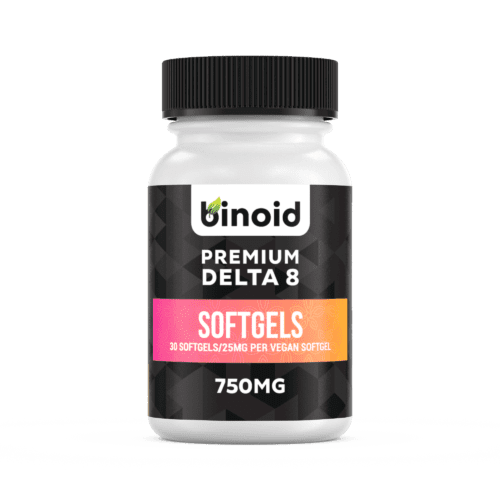 Delta 8 THC Capsules 750MG$31.99
Delta 8 THC Capsules 750MG$31.99$69.99
What are the Key Benefits of Shilajit?
Shilajit’s benefits are nothing short of impressive, and many of them have been confirmed by scientists over the years. These benefits below have been observed by clinical researchers, showing just how useful shilajit is as a therapeutic:
- Improved Digestion and Nutrient Absorption: Shilajit’s fulvic and humic acids allow for improved absorption of nutrients, by enhancing cell permeability, while the minerals in the substance can boost digestive health.
- Promotes Longevity: The properties of shilajit have long been seen as longevity-enhancing, and the high concentration of antioxidants in the substance likely plays a role.
- Kidney and Urinary Tract Support: There are a number of minerals in shilajit that play a role in promoting the health of the kidneys and urinary tract.
- Bone Health: Many minerals in shilajit play a vital role in supporting the health of our bones.
- Blood Sugar and Cholesterol Regulation: Shilajit’s chemical compounds can balance blood sugar and cholesterol levels in the body.
- Immune-Boosting Properties: Shilajit has been found to improve immunity by supplying the body with a high concentration of nutrients that support immune function.
- Anti-Inflammatory Properties: Shilajit has been found to regulate inflammation in the body.
- Long-Term Cognitive Support: Shilajit’s fulvic acids contain antioxidants that play a direct role in the prevention and slowed progression of dementia, by improving cognitive health on a cellular level.
- Hormonal Balance: Shilajit may help regulate menstrual cycle, while promoting the production of male sex hormones to improve fertility.
- Positive Effects on Mood: Shilajit is, like we said, an adaptogen, and a powerful one at that. Adaptogens are plants and fungus that improve the body’s ability to respond to stress, by regulating adrenal functions so that emotional distress is more easily tolerated by the nervous system. This can dramatically improve a person’s day-to-day mood and emotional state, making a person more resilient to the daily stresses of life.
- Short-Term Improved Cognitive Functions: Shilajit’s nootropic properties also help people focus better, and generally maintain higher productivity through improved cognitive functions like memory, stamina, and motivation.
- Improved Physical Energy: Shilajit can improve cellular function, which in turn boosts energy levels. It also has nootropic qualities that can give the nervous system the gentle stimulation it’s looking for, without any feeling of being wired or edgy.
-
Product on sale

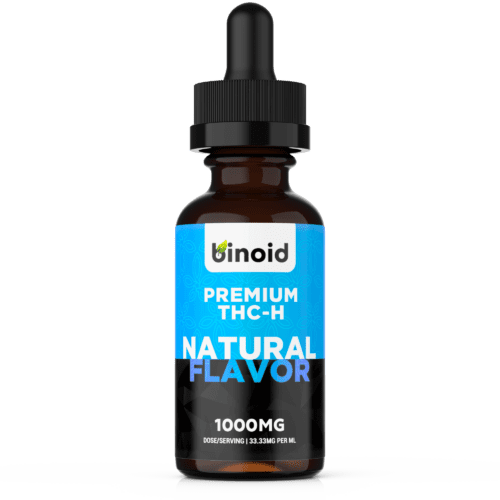 THC-H Tincture – 1000mg$30.99
THC-H Tincture – 1000mg$30.99$79.99
Is Shilajit Actually Safe to Use?
When taken as it’s directed on the label, shilajit is safe to consume daily, with no major side effects noticed. Taking excessive doses can lead to mineral toxicity, although this would require a substantially higher amount of shilajit than recommended on a product’s label. Also, keep in mind that it does affect men a bit differently than women.
Ways to Take Shilajit
Shilajit comes in powder, capsule, liquid, and resin form, with resin being recognized as the best option for efficacy as it’s the purest and most unrefined form there is. Shilajit resin is the result of purifying the freshly harvested substance without refining it further.
What About Ashwagandha?
Now, let’s move onto ashwagandha, which is the most widely used adaptogen around the world – and we bet you’ve heard about this one more than shilajit, as it’s been popular on the market for a while.
Ashwagandha is a root that comes from a smalls shrub species native to India, parts of Africa, and parts of the Middle East. Unlike shilajit, ashwagandha is harvested while the plant is fresh, and so it’s not fermented.
While shilajit is high in minerals and organic acids, ashwagandha is rich in withanolides, which are phyto-steroids that give the root its many benefits. Ashwagandha, like shilajit, has been a mainstay of Ayurvedic medicine, and has been recognized as a beneficial addition to one’s daily routine in the western world over the last several years.
-
Product on sale

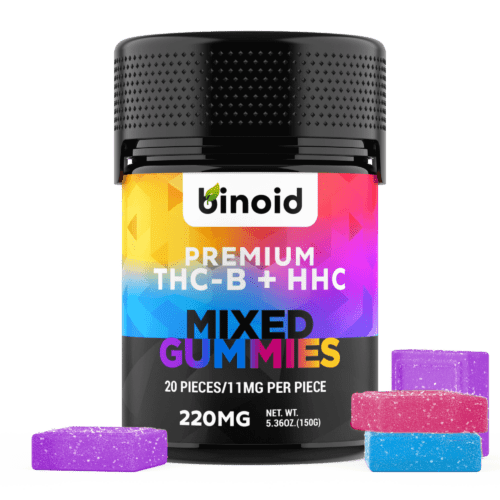 THC-B + HHC Gummies (RELEASE SALE)$25.99
THC-B + HHC Gummies (RELEASE SALE)$25.99$59.99
What are the Benefits of Ashwagandha?
Like shilajit, ashwagandha’s benefits have actually been studied for a long time, and that means that we can confirm a lot of the effects that it promises. Again, ashwagandha’s benefits do have many in common with shilajit, but through different compounds. The most recognized benefits of ashwagandha are:
- Adaptogenic: Like shilajit, ashwagandha works as a powerful adaptogen that can make the nervous system more resilient to psychological stress, resulting in an improved mood and reduced anxiety levels.
- Cognitive Benefits: Another thing that ashwagandha has in common with shilajit is its ability to improve cognitive functions, both in the short and long term. In the short term, it can improve focus, alertness, and motivation, as well as short-term memory. When taken in the long term, its potent withanolides can have a role in the prevention of cognitive decline, supporting healthy neuronal functions and potentially having a positive effect on those with, or those who are prone to dementia.
- Sleep Benefits: Ashwagandha has been found to offer a positive effect on sleep, especially in those whose sleeping difficulties stem from stress or anxiety. It can aid in reducing sleep onset time while supporting deeper, longer sleep throughout the night.
- Anti-Inflammatory Effects: Ashwagandha may also act as an anti-inflammatory, particularly helping those who are prone to joint and muscle inflammation that causes pain and difficulty with mobility.
- Reduced Cholesterol: Another thing that these two substances have in common is their benefits regarding cholesterol. Ashwagandha may also reduce cholesterol and triglyceride levels in the body to improve cardiovascular health, and potentially aid in diabetes management as well.
- Improved Muscle Mass and Strength: Finally, ashwagandha has been found to boost muscle mass in muscle strength, in a way that can positively benefit athletic performance.
- Improved Sexual Function: Ashwagandha can increase testosterone levels in men, and potentially aid in sexual performance.
- Improved Fertility: Ashwagandha has been observed for its positive impact on fertility, through the regulation of sex hormones.
-
Product on sale

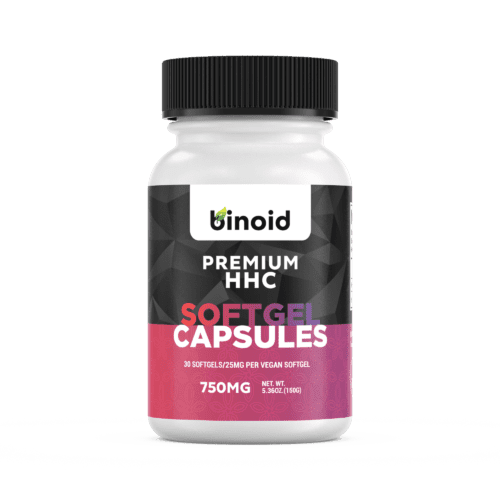 HHC Capsules 750MG$30.99
HHC Capsules 750MG$30.99$74.99
Is Ashwagandha Considered Safe?
Ashwagandha’s safety profile is the same – in other words, as long as it’s taken as instructed, it’s safe for daily use, and nontoxic. Because it is not a potent source of minerals, there is no concern about mineral toxicity, either. The most commonly reported side effects with ashwagandha are upset stomach, diarrhea, headache, and fatigue.
How to Take Ashwagandha
Ashwagandha is usually found as either a powder or a capsule, as the root is easy to dry and grind up. And, they’re both great ways to benefit from what the root has to offer. To produce bioavailable ashwagandha for human consumption, the root is dried and ground into a fine powder. This can be sold in powder form, to dissolve into liquids, or in capsule form, which simply encapsulates the powder in a gel capsule.
How Can I Choose Between the Two?
Now, you know what each natural substance can offer, and you may be wondering which one is better suited for you. To make that decision, here are some key things to consider:
- Identify Specific Health Goals – See the benefits we covered for each.
- Match Goals with Herbal Properties – See which one matches the herbal-side of your regimen based on its said effects.
- Conduct Extensive Research – Credible websites, scientific studies, and publications related to herbal supplements.
- Seek Professional Advice: Healthcare practitioners (i.e., doctors/physicians, naturopaths, or pharmacists) can assess your medical history, existing health conditions, and medications to determine if shilajit or ashwagandha is okay for you to have. Their knowledge will help maximize shilajit’s and ashwagandha’s benefits while minimizing any potential risks.
-
Product on sale

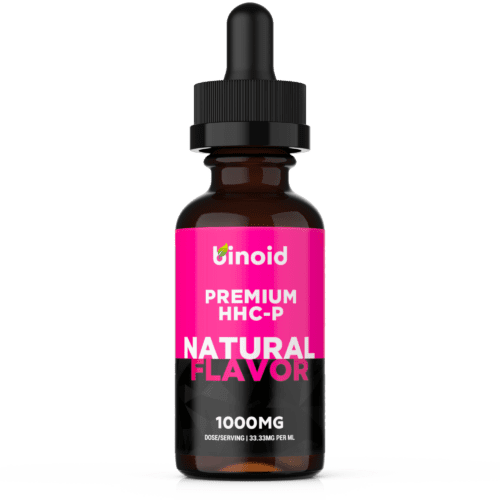 HHC-P Tincture – 1000mg$30.99
HHC-P Tincture – 1000mg$30.99$79.99
Can I Take Both Shilajit and Ashwagandha Together?
So, what if you want to take both products to benefit from each one? Thankfully, that’s absolutely fine. A lot of people around the world use both shilajit and aswagandha, and typically go with shilajit in the morning and ashwagandha at night, due to the more relaxing effects associated with the latter. In fact, you can find multiple products on the market that already contain both, typically in the form of “adaptogenic blends”.
There isn’t any concern about an interaction between these two substances, although both can interact with certain medications, so once again, speak to a healthcare practitioner before trying either. Also, these substances haven’t been tested on pregnant or breastfeeding women, so we do not recommend taking either under those circumstances.
Our Closing Thoughts
Both shilajit and ashwagandha can do wonders for helping you achieve optimal wellbeing, the natural way. Shilajit is very high in nutrients that can impact your health in a multitude of ways, while ashwagandha is mainly used for stress, sleep, and muscle/joint health. However, each are natural substances that have been used for thousands of years, and in all likelihood, ancient cultures have taken the two together routinely, longer than we know it.
If natural wellness is an area you want to dive into, both of these products are great for daily use. And, at Bounce Nutrition, you can find the highest-quality shilajit live resin, lab-tested for purity and safety, to jumpstart your adaptogen regimen.


